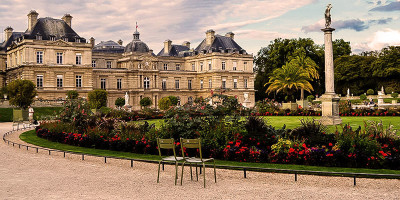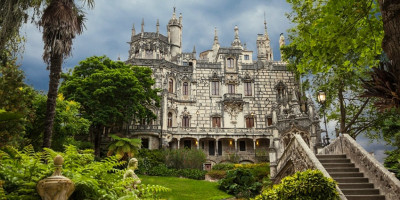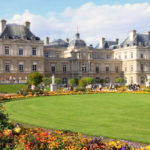
Photo by Hans van Dijk from Wikimedia
Top 10 Remarkable Facts about Harry Mulisch
Born on 29th July 1927 in Haarlem, Netherlands, Harry Kurt Victor Mulisch was a Dutch writer. He wrote more than 80 novels, plays, essays, poems, and philosophical reflections.
His father was from Austria-Hungary and had emigrated to the Netherlands after the First World War, while his mother, Alice Schwarz, was Jewish.
Mulisch died in 2010 at his Amsterdam home. He is considered one of the “Great Three” of Dutch postwar literature, Along with Willem Frederik Hermans and Gerard Reve
Here are the top 10 Remarkable facts about Harry Mulisch
1. He wrote more than 80 novels

Photo by Jack de Nijs for Anefo from Wikimedia
Mulisch wrote more than 80 novels, plays, essays, poems, and philosophical reflections, his works have been translated into over thirty languages.
His most famous novel “The assault”, was published in 1982, and was adapted into a film that won a Golden Globe and an Academy Award.
The Golden Globe Awards are accolades bestowed by the Hollywood Foreign Press Association recognizing excellence in both American and international film and television.
2. Referred to himself as the Second World War
Talking to a Dutch broadcaster after Mulisch’s death, fellow writer and friend Cees Nooteboom, said that Mulisch considered himself a second world war. He described his friend as a unique literary personality.
Cees noted that Mulisch’s parentage had a huge impact on him. It was always about the war, the war, and the war. It left an indelible mark on the work and the man himself.
3. Won the 2007 International Nonino Prize

Pho by Fotopersbureau De Boer from Wikimedia
In the year 2007, Mulisch won the international Nonino Prize in Italy, a prestigious award and one of the most important awards in Italy. The prize was established in 1975 by an Italian family.
The prize was meant to save the ancient autochthonous vines of Friuli in danger of extinction and for the valorization of the peasant civilization. It is assigned to the most important personalities in the cultural, literary and wine, and food fields.
4. His Novel was voted the best Dutch-language Book Ever
Mulisch’s novel “The discovery of heaven published in 1992 is considered to be the best novel he wrote. It was voted the best Dutch-language book ever by Dutch readers in a 2007 newspaper poll.
The book consists of four parts dubbed “The Beginning of the Beginning”, “The End of the Beginning”, “The Beginning of the End”, and “The End of the End”
It was one the best sellers across the globe by a Dutch writer and has been translated into several languages.
5. He was Eulogized by the Dutch Prime Minister
After his death in 2010, Mulisch was eulogized by writers and non-writers from across the Globe.
Dutch Prime minister Mark Rutte eulogized him as a great writer and described his death as a loss for Dutch literature and the Netherlands as a whole.
We all grew up with him,” the premier said. “Mulisch presided over Dutch literature. This is the end of an era.”
6. He Won a Lifetime Achievement Award

Photo by Marcel Antonisse / Anefo from Wikimedia
Among the many awards he received for individual works and his total body of work, the most important is the Prijs der Nederlandse Letteren also known as the Prize of Dutch Literature, a lifetime achievement award in 1995.
The Prijs der Nederlandse Letteren is awarded every three years to an author from the Netherlands, Belgium and, since 2005, Suriname writing in Dutch.
It is considered the most prestigious literary award in the Dutch-speaking world. The award is presented alternately by the reigning Dutch and Belgian monarchs.
7. Most of his works Revolved around World War II
A frequent theme in his work is the Second World War. His father had worked for the Germans during the war and went to prison for three years afterward.
As the war spanned most of Mulisch’s formative phase, it had a defining influence on his life and work. In 1963, he wrote a non-fiction work about Nazi war criminal and holocaust architect, Adolf Eichman.
Eichmann was captured by Israeli Security Forces in Argentina and was convicted of war crime and sentenced to death.
8. He Signed a book dedicated to Admiration of Fidel Castro

Photo by Boer, Poppe de from Wikimedia
Mulisch often incorporated ancient legends or myths in his writings, drawing on Greek mythology, Jewish mysticism, well-known urban legends, and politics.
Mulisch was politically left-wing, and he once signed a book dedicated in admiration to Fidel Castro.
Fidel Castro was a Cuban revolutionary and politician who was the leader of Cuba from 1959 to 2008.
9. He Delivered the Huizinga Lecture
In 1984 Mulisch delivered the Huizinga Lecture in Leiden, in the Netherlands, under the title “the unifying principle.”
The Huizinga Lecture is an annual lecture in the Netherlands about a subject in the domains of cultural history or philosophy. The lecture is in honor of Johan Huizinga, a distinguished Dutch historian who worked in the first half of the 20th century.
The Lecture is organized by the nationwide daily general newspaper Handelsblad, the Faculty of Humanities of Leiden University, and the Society of Dutch Literature.
The lecture is held alternately by a Dutch and a non-Dutch intellectual. It started in 1972 and is held annually in December in Pieterskerk, Leiden, The Netherlands
10. He was one of the “Great Three” of Dutch post-war Literature
Along with Willem Frederik Hermans and Gerard Reve, Mulisch is considered one of the “Great Three of Dutch post-war literature writers.
Willem Frederik Hermans was a famous writer of poetry, novels, short stories, and plays. He also wrote book-length studies, essays, and literary criticism.
Gerard Reve was one of the first homosexual authors to come out of the Netherlands and often wrote explicitly about erotic attraction, sexual relations, and intercourse between men.

 English
English










